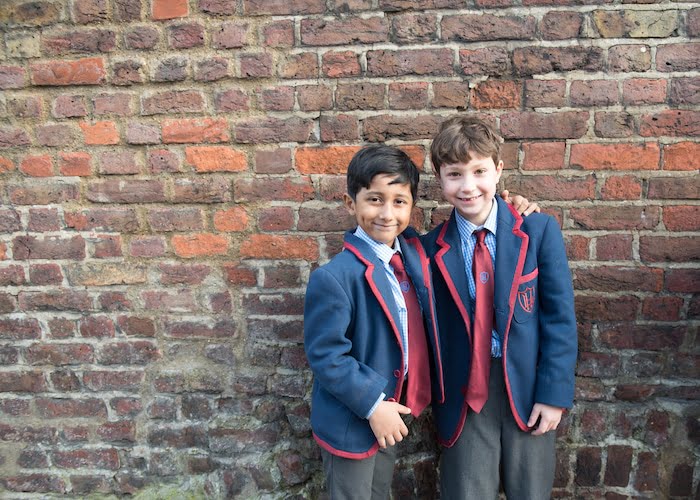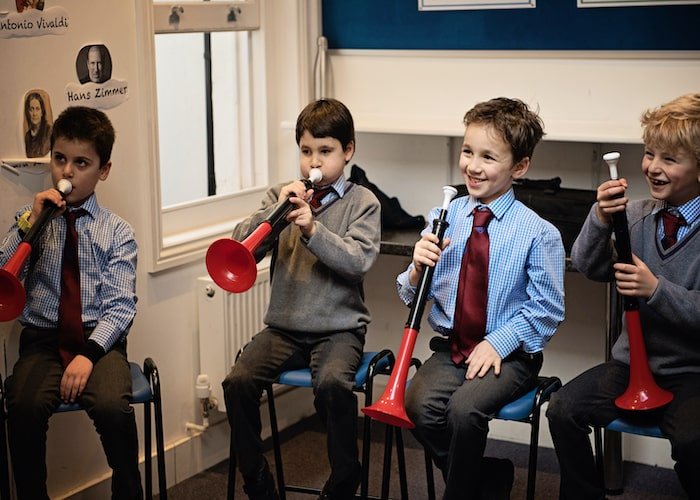Choosing a Preparatory School for your son is a big decision. With so many factors to consider, it can feel a little overwhelming. Do boys do better at single sex or co-ed schools?
What do you do if your son is not into sports? Is a school that can offer academic success better than a school that has an extensive extracurricular offering? When making your decision, it can be helpful to identify the specific factors that are most important to you. Read on to find out how to choose the school that’s the best fit for your child.
Single sex or co-educational?
Studies have found that whilst girls tend to perform better at single sex schools, the outcomes for boys don’t differ significantly whether they are at an all-boys school or a co-educational school.
However, there are some big advantages of single sex schools for boys. Firstly, girls and boys often learn in different ways. Boys schools can make small, but significant, changes to teaching methods to increase their pupils’ engagement and academic achievement. Secondly, girls and boys often mature at different rates. An all-boys learning environment allows boys to work at their own pace, without comparison to their female peers.
Boys also tend to participate more in extra-curricular activities such as choir or drama at single sex schools, as well as get more involved in student leadership roles. The freedom to participate in a broader range of extra-curricular activities without the worry of fitting a particular gender stereotype is a particularly positive thing for boys who are not naturally sporty. At co-educational schools, sport tends to be a subject that boys retreat into.
Single sex or co-educational however, the most important thing is for your child to be happy. Talk to them before you start applying for schools and find out which route appeals to them most.


Take school size into consideration
A school’s size can have a big impact on whether it’s a good fit for your child. Large schools can usually offer more extensive facilities and as a result might have a broader range of extracurricular activities for pupils to choose from.
In independent education, smaller schools tend to be able to offer capped class sizes with more one-to-one attention. Think about your son’s character and their learning needs whilst making your decision.
Lyndhurst House in Hampstead, for example, offers a lot of individual attention to each boy. The School is known for its friendly atmosphere, where new pupils feel at home quickly. Boys are able to develop their talents and there is a natural progression at thirteen to senior schools.
Extra-curricular activities, academic record, or pastoral support?
Extra-curricular activities, academic record, and pastoral support are all important factors to consider when choosing a school for your child. Evaluate how different schools encourage academic progress, but also how they nurture a child’s passions and their emotional wellbeing.
Lyndhurst House prides itself on the breadth of its education. The school not only achieves excellent academic success, but they also place huge importance on developing their pupils’ talents, as well as giving them individual support. The School’s dedicated team of staff includes Classroom Teachers and Assistants for the younger boys, and also Specialist Subject Teachers. In this way, the pupils’ academic and pastoral needs are carefully met.
Think about your child’s personality, interests, needs, and also their strengths. Talk to your son and make a list of the most important factors. If your child is happy at school, it will build their self-confidence. This will enable them to be successful in the rest of their educational journey and beyond.


Educational ethos and values
A school’s ethos can tell you a lot about its culture, the values across the school community, and what the learning environment is like. Schools will usually outline their ethos in their prospectus, as well as on their website, so have a good read and identify the key phrases that speak to you.
You can also get a good feel for a school’s ethos by attending an Open Day. Make sure you speak to both students and teachers to get a well-rounded view of what the school is all about.
Lyndhurst House, for example, encourages enthusiasm, commitment, self-respect, self-confidence and a sense of responsibility amongst its students. The School endeavours to develop the strength and personality of each boy, and this helps to prepare them for the next step in their educational journey. Lyndhurst has an excellent record of achievement at Common Entrance and Scholarship Level, particularly with the major London Public Schools.
Think about the logistics
Logistics are always going to play a huge part in the school you choose, so think about your family’s needs on a practical level. Are you within walking distance of the school, or is there a school bus? Do they offer after school clubs? What about the SEN provision? Which senior schools do pupils go on to study at?
If you have several children, you might also want to think about the benefits to them going to the same school. Simplifying your routine, admin, uniforms and parents’ evenings, as well as potential discounts, are just a few benefits to consider.
However, children can have very different needs, so just because a school suits your eldest, it might not necessarily be the best option for your youngest. If you’re looking at prep schools for your first child and think you might want a younger sibling to join them in the future, choose a school that is able to nurture individual talents across a range of abilities.
It can be difficult to know how your child’s (and your family’s) needs might change, so a school that is able to deliver on as many levels as possible is likely to be a good choice.


Book a place at a school’s Open Day, so that you can visit in person
The only way to really get a real feel for what a school is like is to meet with staff and pupils. Book a place at as many Open Days as possible and secure an individual tour of the school. Observe the teaching, talk to the staff and the pupils. Ask as many questions as you can.
If you’re unable to attend-in person, many schools continue to offer virtual tours. You should still be able to see the school’s facilities, hear from both staff and pupils and gain a better understanding of what the school is all about.
Register early and check entrance requirements to have the best chance of securing a place
Once you’ve made a shortlist of schools, it’s important to register your interest early. London can be particularly competitive, so it’s critical to secure entrance onto a waiting list to have the best chance of securing a place.
Read the admissions and selection procedure carefully. ‘Non-selective’ schools often have an assessment process, even if they don’t have formal testing requirements. Unless a school is highly academically selective, the assessment process will usually take several different factors into account. Many schools look at emotional development and social interaction, so test results aren’t always the most important thing. At Lyndhurst House, for example, boys will be offered a place based on an assessment and interview. This is to gauge a boy’s potential to follow the school’s curriculum.
Listen to your child and follow your instincts
The best school for your son is ultimately going to be the one he is happiest at. It can be hard to predict how a child will change from nursery-age to getting ready to go off to senior school – how their talents might develop or what their interests might be. So, look for a learning environment where you can see them flourishing, growing in confidence and feeling settled. Happy children learn best, so make sure you involve your son in the process of choosing a school and don’t forget to trust your instincts.
You may also like...























